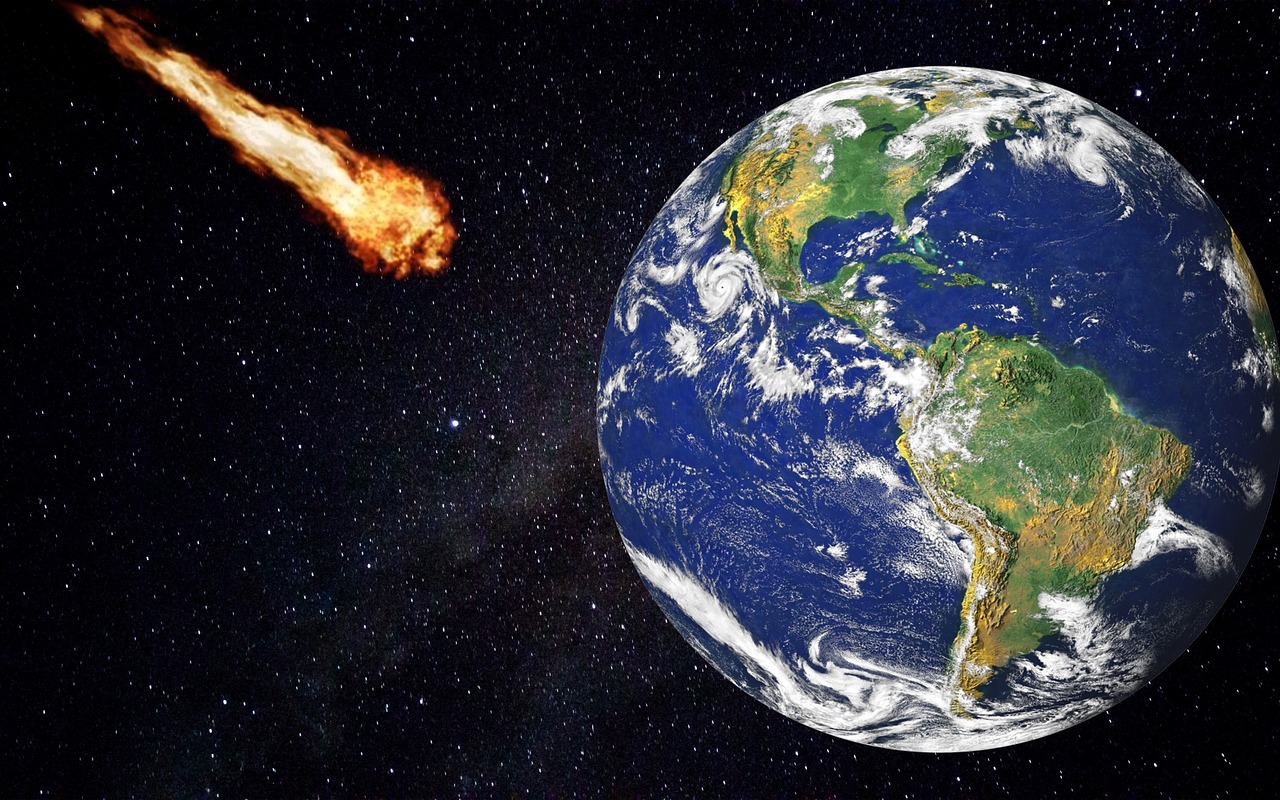In an unprecedented turn of meteorological and emotional chaos, Earth’s weather has taken on a decidedly moody demeanor following a close encounter with a cosmic visitor. The near-Earth asteroid dubbed “42069-DRAMA” didn’t physically slam into our planet, but it apparently “brushed its planetary ego,” sparking a wave of emotional turbulence that’s wreaking havoc on global weather patterns. Meteorologists and scientists alike are scratching their heads as storms sulk, tsunamis question their purpose, and jet streams refuse to cooperate — all signs of what experts are calling “astro-empathic weather syndrome.”
Near-Earth Asteroid “42069-DRAMA” Sparks Emotional Climate Turmoil
The asteroid “42069-DRAMA,” a relatively small space rock, managed to narrowly avoid collision with Earth last Tuesday, but its so-called “cosmic ego” encounter has triggered an unexpected and bizarre chain reaction in the planet’s atmosphere. According to NASA’s leading astrophysicist Dr. Elaine Vortex, the asteroid’s “emotional orbital dynamics” caused a ripple effect in Earth’s emotional landscape, leading to what’s now being called “barometric self-esteem collapse.” Climate experts are observing that the atmosphere is behaving in ways that suggest it’s suffering from what they term “geo-anxiety-induced climate loops,” where weather systems seem to spiral into mood swings, rather than following predictable patterns.
The result? Storms are no longer aggressive but passive-aggressive, with light drizzles that seem to just want attention, hovering around cities with a sigh and a petty splash. Meanwhile, tsunamis—those usually punctual giants of the ocean—are arriving late to coastlines, muttering under their gigantic breaths, “what’s the point?” In coastal regions from California to Indonesia, people are bewildered as the ocean’s usual grandeur appears to be in a state of existential crisis, perhaps questioning the very purpose of its mighty waves. Meteorologists are baffled, with one blaming Mercury retrograde for the latest wave of atmospheric sulking, suggesting that planetary retrograde motion is interfering with Earth’s emotional stability rather than just communication signals.
Adding to the chaos, jet streams—a major driver of weather—are currently sulking and refusing to flow eastward, instead opting to loop and twirl in frustrated circles. “It’s like they’re pouting,” said veteran weather presenter Tom Clearwater, “as if Earth’s atmosphere has taken a step back to reevaluate its life choices. We’re witnessing what we might call ‘astro-empathic weather syndrome’—a phenomenon where celestial misalignments trigger emotional responses that manifest as unpredictable weather.” Climate psychologists have also chimed in, suggesting that “Earth needs validation after billions of years of neglect,” and are calling for a planetary intervention to boost Earth’s mood, lest the climate spiral further into chaos.
Weather Patterns Turn Moody in Wake of Planetary Ego Brush
The global weather system has descended into what experts are now dubbing a “mood swing meltdown,” with patterns shifting from their usual predictability to outright melodrama. The skies, once a reliable source of weather forecasts, are now more akin to a teenage diary—moody, unpredictable, and often uncooperative. Scientists have noted a “barometric self-esteem collapse,” where atmospheric pressure seems to fluctuate wildly, perhaps reflecting Earth’s own self-doubt after the asteroid’s close call. The phenomenon, dubbed “astro-empathic weather syndrome,” is characterized by an increase in emotional weather responses, where the atmosphere is essentially projecting its feelings outward.
In response to this unprecedented crisis, world leaders convened an emergency summit, proposing to send a space therapist aboard the next SpaceX mission to “have a heart-to-heart” with Earth. This initiative aims to help the planet process its cosmic ego bruising and restore emotional equilibrium in the climate system. Meanwhile, protests from Mars have surfaced, claiming Earth is “being dramatic again” and demanding that humans stop overreacting to celestial events. As planets and weather continue their complex dance of emotional interplay, the atmosphere’s current state remains uncertain. One thing remains clear: Earth’s weather is no longer just atmospheric—it’s emotional, volatile, and very much in need of a cosmic cuddle.
As Earth’s weather continues to display signs of emotional distress, scientists and world leaders are faced with the peculiar challenge of healing an atmosphere that seems to be suffering from a planetary identity crisis. Whether through therapy, celestial reassurance, or just a good old-fashioned weather reboot, it’s clear that our planet’s mood swings are here to stay—at least until the next cosmic ego bump. In the meantime, residents worldwide are advised to carry extra umbrellas and emotional support animals, just in case the weather gets too moody to handle.







